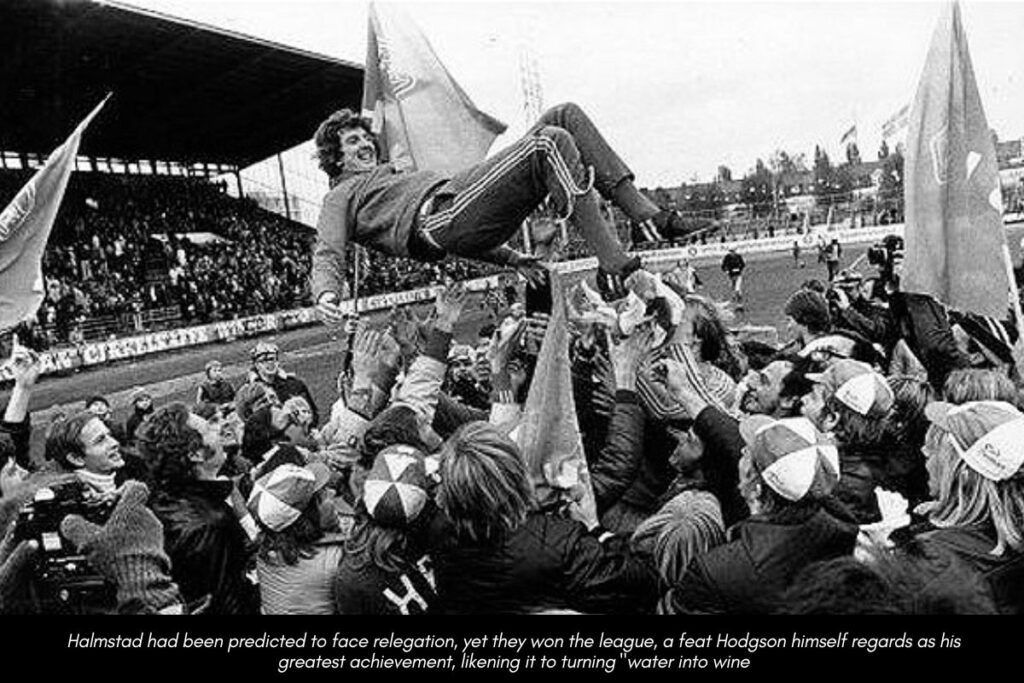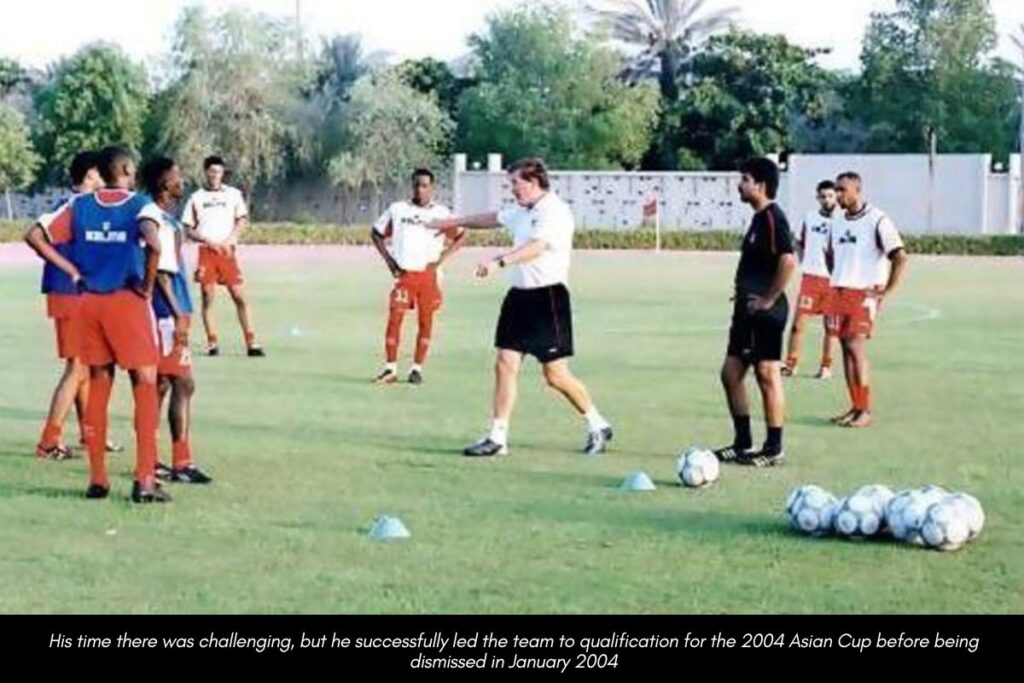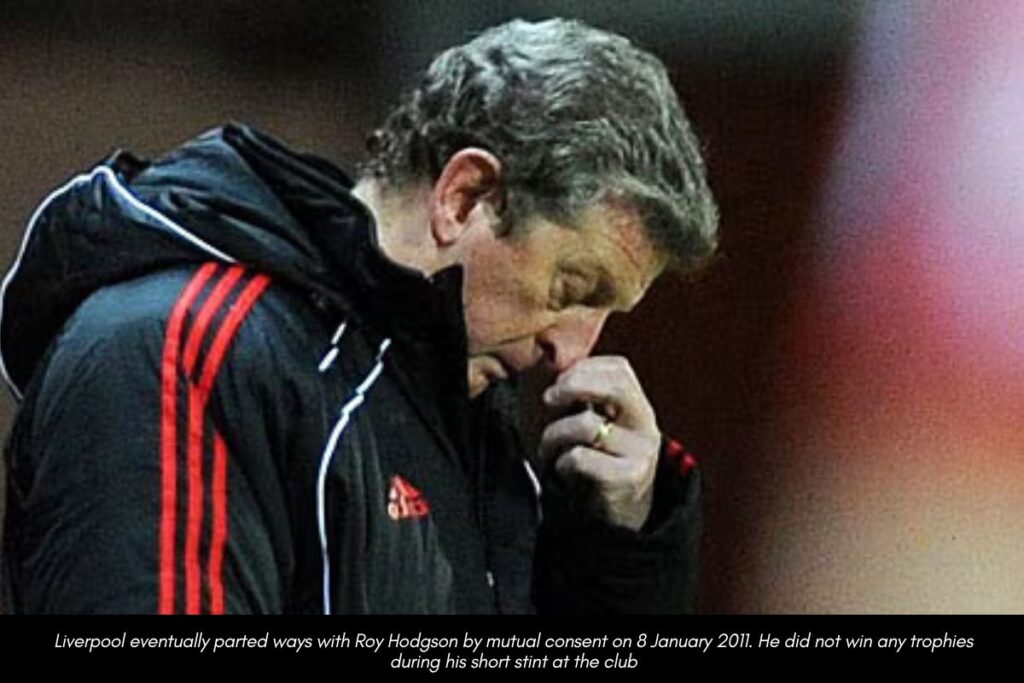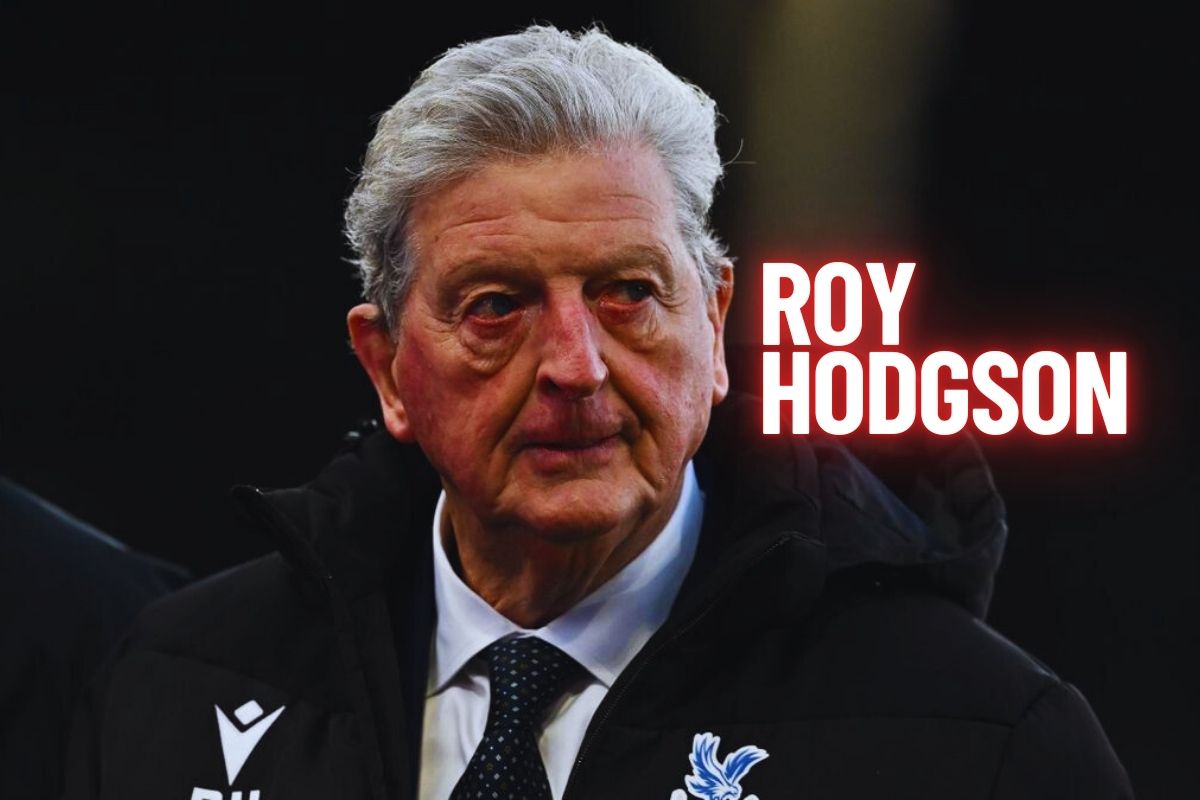The multitude of ‘Liverpool Legends’ examines the influence of notable figures in the club’s history. Roy Hodgson’s tenure at Liverpool is a contentious chapter. Unlike iconic managers such as Bill Shankly and Jürgen Klopp, who epitomized the club’s spirit and success, Hodgson’s time at Anfield is often seen as a misalignment. His appointment and subsequent struggles highlight a period marked by disconnect and challenges, making his tenure a curious choice for the esteemed role. This introduction explores Hodgson’s controversial stint and the reasons why his time at Liverpool is viewed as one of the club’s more perplexing managerial decisions.
Early Life and Career
Roy Hodgson was born on August 9, 1947, in Croydon, Surrey. Growing up in a working-class family, his mother was a baker and his father worked as a bus driver. Hodgson’s childhood revolved around football, playing alongside future football figures Steve Kember and Lennie Lawrence at John Ruskin Grammar School. His talent on the school team caught the attention of Crystal Palace, where he played as a youth but struggled to break into the first team.
Determined to pursue a football career, Hodgson moved to non-league sides, starting with Tonbridge Angels from 1966 to 1969. He later played for Gravesend & Northfleet, making 59 league appearances and scoring once. Hodgson’s journey continued with stints at Maidstone United, Ashford Town in Kent, and Berea Park.
In 1974, Roy Hodgson signed for Carshalton Athletic, where he eventually ended his playing career in 1976. Alongside his playing career, Hodgson also took on coaching responsibilities, serving as Assistant Manager at Maidstone United, signaling his future in football management. This early period laid the foundation for his extensive managerial career, despite his modest playing achievements.
Series of Managerial Seats Before Liverpool FC
Before becoming one of the club’s legends, Roy Hodgson began his managerial career in 1976 with Allsvenskan side Halmstad, upon the recommendation of then-Malmö manager Bob Houghton. Hodgson’s tenure at Halmstad lasted five years, during which he led the team to league championships in 1976 and 1979. His first season in 1976 is particularly noteworthy as Halmstad had been predicted to face relegation, yet they won the league, a feat Hodgson himself regards as his greatest achievement, likening it to turning “water into wine.”
In 1980, Hodgson returned to England to join Bristol City as an assistant manager to Bob Houghton. He was promoted to manager in January 1982 but faced significant challenges due to the club’s financial difficulties. His tenure was short-lived, lasting only until April 1982, as he struggled to maintain the team’s performance amidst severe financial constraints. After his brief stint at Bristol City, Hodgson moved back to Sweden to manage second-tier side Oddevold in 1982. Despite his efforts, the club was relegated. He then managed Örebro, achieving third place in his first season and first place in his second season, though the team failed to secure promotion to Allsvenskan after losing in the playoffs.

In 1985, Roy Hodgson took over Malmö and achieved significant success, winning five consecutive league championships and two Swedish Cups. His teams regularly participated in European competitions, with notable performances including a quarter-final appearance in the 1986–87 European Cup Winners’ Cup and a memorable victory over Inter Milan in the 1989–90 European Cup. Hodgson’s successful tenure at Malmö has left a lasting legacy, with fans unofficially naming a section of the stadium “Roy’s Hörna” (Roy’s Corner).
Hodgson, along with Bob Houghton, introduced zonal marking and a high-pressing game to Swedish football, significantly influencing the tactical approach in the country. Their innovative strategies, including the use of a back four and quick counter-attacks, marked a departure from the traditional German-influenced sweeper systems prevalent in Sweden at the time. Hodgson moved to Swiss side Neuchâtel Xamax in July 1990. He led the team to a third-place finish in his first season and a second-place finish in the following season. In European competitions, Xamax achieved notable victories over Celtic and a home win against Real Madrid, though they were eliminated after a heavy defeat in the return leg.
In January 1992, Roy Hodgson took over as manager of the Switzerland national team. He guided Switzerland to the 1994 World Cup, their first major tournament since 1966, and achieved a top-ten FIFA World Ranking. Under his management, Switzerland also qualified for Euro 1996. Hodgson’s innovative training methods and tactical acumen earned him widespread acclaim, though he left the position in November 1995 to join Inter Milan.
Hodgson joined Inter Milan in 1995, steering the team from a poor start to a seventh-place finish in Serie A and qualification for the UEFA Cup. In the 1996–97 season, he guided Inter to third place in Serie A and the UEFA Cup final, which they lost on penalties to Schalke 04.
Despite the club’s improvement under his management, Roy Hodgson left in 1997, feeling it was time for a change. That’s when Hodgson agreed to join Blackburn Rovers. His first season saw the team finish sixth in the Premier League, qualifying for the UEFA Cup. However, his second season was marred by injuries and internal issues, leading to poor results and his dismissal in November 1998 with Blackburn at the bottom of the league table.
Hodgson briefly returned to Inter as technical director and caretaker manager before moving to Switzerland to coach Grasshoppers for a season, achieving a fourth-place finish. He was shortlisted for the England manager’s job in 2000 but moved to Copenhagen instead. At Copenhagen, Hodgson led the team to the 2000–01 Superliga championship and the 2001 Danish Supercup. He then moved to Udinese in Serie A, but his tenure was short-lived as he was dismissed in December 2001.

In 2002, Roy Hodgson became manager of the United Arab Emirates national team. His time there was challenging, but he successfully led the team to qualification for the 2004 Asian Cup before being dismissed in January 2004. Hodgson managed Norwegian club Viking from 2004 to 2005, leading them to the UEFA Cup. He then took over the Finland national team in January 2006, narrowly missing out on qualification for UEFA Euro 2008. His tenure with Finland earned praise for well-organized defending, although the team struggled with scoring goals.
In December 2007, Roy Hodgson took over as manager of Fulham, who were struggling in the Premier League. He guided the team to safety with a remarkable run of form at the end of the season. In the 2008–09 season, he led Fulham to their highest-ever league finish and qualification for the UEFA Europa League. The 2009–10 season saw Fulham reach the Europa League final, where they lost to Atlético Madrid. Roy Hodgson’s success at Fulham revitalized his reputation in English football, making him a sought-after manager once again.
Moving to Anfield Stadium
Roy Hodgson replaced Rafael Benítez as the manager of Liverpool FC on 1 July 2010. His tenure at the club was brief and largely unsuccessful. Despite making several signings, including Milan Jovanović and Joe Cole, Hodgson struggled to deliver positive results. His first competitive match was a 2-0 win against Rabotnički in the Europa League, but his Premier League campaign was marred by inconsistent performances and poor results. A significant low point was Liverpool’s elimination from the League Cup by League Two side Northampton Town, losing on penalties at Anfield.
Roy Hodgson’s only notable win in the league came against West Bromwich Albion on 29 August 2010. However, this victory did little to alleviate the mounting pressure, as Liverpool found themselves in the relegation zone after a defeat to Blackpool on 3 October 2010. Speculation about Hodgson’s future grew, despite his insistence that he could manage the club’s high-profile players and his self-description as “one of the most respected coaches in Europe.”

Liverpool eventually parted ways with Roy Hodgson by mutual consent on 8 January 2011. He did not win any trophies during his short stint at the club. Kenny Dalglish, a former Liverpool legend and club ambassador, succeeded Hodgson as the manager, aiming to stabilize the team and improve their fortunes.
Life After Liverpool FC
Roy Hodgson’s time at Liverpool was fraught with challenges, leading to his departure by mutual consent on 8 January 2011. Following his exit, Hodgson joined West Bromwich Albion, where he managed to secure the club’s highest top-flight finish since 1981 by the end of the season. This success rejuvenated his managerial career, paving the way for his appointment as the England national team manager on 1 May 2012.
Hodgson’s tenure with England saw him lead the team to various international tournaments, but his reign ended on 27 June 2016 after a disappointing exit from Euro 2016 at the hands of Iceland. His managerial journey continued as he took charge of Crystal Palace in September 2017, the club he supported as a boy. Hodgson remained at Palace until the end of the 2020-2021 season, after which he briefly managed Watford. In March 2023, he made a return to Crystal Palace, demonstrating his enduring commitment to the sport.
Despite facing criticism and mixed results throughout his career, Roy Hodgson’s resilience and extensive experience have allowed him to continue contributing to football at various levels. His journey post-Liverpool underscores his dedication to the game and his ability to adapt and persist in the face of adversity.
Conclusion
Roy Hodgson’s extensive managerial career, marked by a mix of successes and setbacks, showcases his resilience and adaptability in the football world. Despite a challenging tenure at Liverpool, he rebounded to achieve notable successes with West Bromwich Albion and later fulfilled his long-held ambition of managing the England national team. His subsequent roles at Crystal Palace and Watford further underscored his enduring passion and commitment to the sport. Hodgson’s journey illustrates a steadfast dedication to football, proving that even amid criticism and difficulties, perseverance and experience can lead to continued contributions and impact within the game. His career remains a testament to the highs and lows of football management and the enduring spirit required to navigate them.
Read all other posts on Roy Hodgson
Find the Latest News on Player Ratings | Transfers | Prematch | Postmatch
Stay tuned for more updates on Liverpool FC Times and Stories. Your thoughts are always welcome in the comments section. Thank you for your continued support!
YNWA (You’ll Never Walk Alone)!
The Liverpool FC Times Team
LiverpoolFCTimes.com
